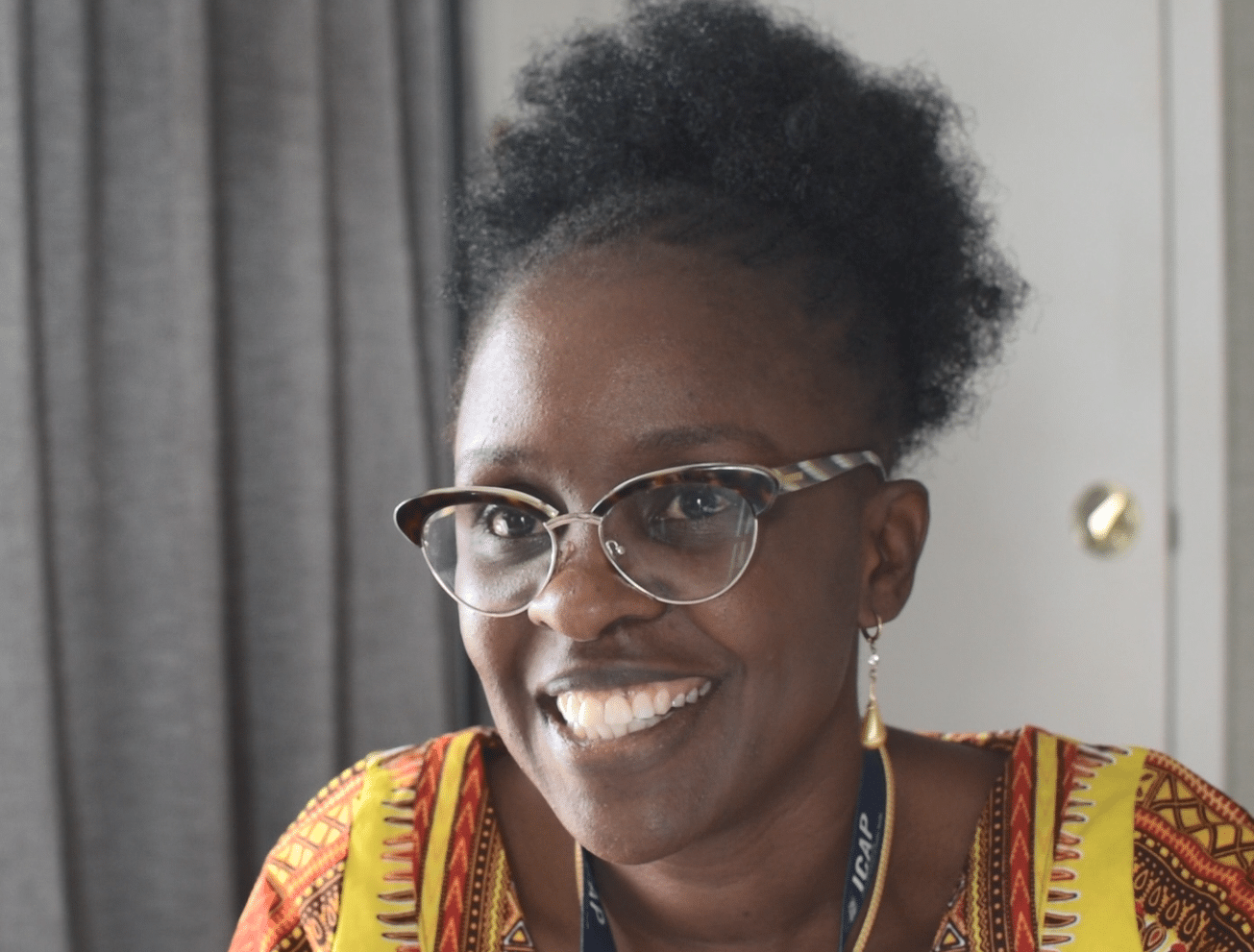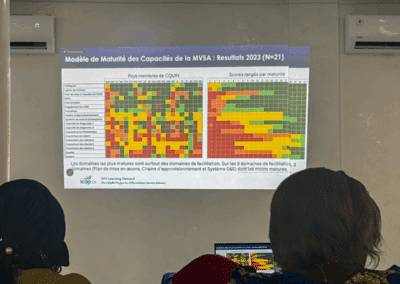Dr. Mastidia Rutaihwa is a pediatrician and adolescent program officer at the Tanzania Ministry of Health’s National AIDS Control Program (NACP). She oversees the development and implementation of differentiated service delivery (DSD) throughout Tanzania – the latest country to join CQUIN. Dr. Rutaihwa and her colleagues attended CQUIN’s second annual meeting in Addis Ababa, Ethiopia in November 2018 to learn best practices and accelerate DSD scale-up in Tanzania. Here, she discusses her role as the DSD focal person at NACP, and how she thinks CQUIN can help them to provide client-centered care at scale.
What is your role and how is it related to DSD?
As the program officer at the Tanzania Ministry of Health’s National AIDS Control Program, I lead the development and implementation of policies, guidelines, and standards for comprehensive HIV services for children and adolescents. I’m also the DSD model focal person at the Ministry, where I lead the development of guidelines, operational manuals, and job aids for recommended HIV service delivery models. We use these materials to train regional and counsel managers, as well as health care providers using a blend of technical assistance, mentorship, and support supervision to ensure these models are properly implemented and scaled up.
Why is DSD important for Tanzania?
We, like many others, believe it’s time to treat recipients of care differently. There’s such a variety of needs to be met, and DSD is going to help us do that. It’s also important for the health care system in Tanzania in order to reduce the burden on health care workers and allow them to spend more time with their clients who need more clinical attention to improve their treatment outcomes.
One example of DSD we’ve implemented here is multi-month prescriptions. We used to provide antiretroviral (ARV) refills monthly, and many of these individuals, especially those who have been adhering to their medication for a long time, don’t need to come to the facility every month. They’re strong, healthy, and should invest their time in other things like work, school, and spending time with their families. Now we’ve moved to three-month refills, which reduces the number of visits each person makes to the health facility. By providing them with less frequent clinic visits, we’re able to give them their time and independence back.
Differentiated service delivery has also allowed us to take time to consider which recipients of care are most in need of services. For example, we discovered low antiretroviral therapy (ART) coverage in children and adolescents living with HIV in Tanzania. Using the DSD approach, we were able to adjust our priorities and focus more on these sub-populations, resulting in improved treatment coverage.
What do you hope DSD helps accomplish in Tanzania in the next five years?
First, I hope to see us meet our targets. Ensuring that we find individuals living with HIV and getting them in quality care is our first priority. With DSD, we’re expecting to scale-up our viral load services, which we’re currently struggling with.
What are some of the challenges you face with DSD scale-up?
It’s often difficult to implement all of the models that the World Health Organization (WHO) has recommended. Implementation can often depend on donor funding, and there are some models we just can’t adopt here, at least not now. For instance, community outreach and mobile services require lots of resources – from staffing to transportation and fuel costs – to provide services and outreach. We’ve scaled up care and treatment services at the community level and need health care providers to deliver support and supervision.
Demand creation is another challenge. We’ve struggled with getting recipients of care to know and understand what options they have and for them to demand these services. I believe the key to demand creation is clear, targeted messaging through television, brochures, and local radio.
How do you think CQUIN can help you and your colleagues scale-up DSD?
CQUIN is a highly effective hub for member countries to learn and exchange valuable information about DSD scale-up. We can pinpoint issues like demand generation and monitoring and evaluation (M&E), and work toward solutions with other members. The CQUIN meetings help make countries accountable, and the use of the DSD Dashboard is a clear, easy way for us to see how we’re progressing over time, and compare ourselves with others. These things help us chart a clear path to our goals each time we meet.
Knowledge exchange and technical assistance will also be a big help as we try to increase demand generation and improve our service delivery models. There’s a lot of discussion about M&E, which will be helpful for us as we consider what indicators to establish to measure DSD implementation.
Learn more about DSD in Tanzania
This interview is part of the series: Perspectives on differentiated service delivery, exploring expert views and insights into the importance of DSD in sub-Saharan Africa, and the unique challenges they face in advancing services for people living with HIV. For more updates on this series, and other network activities, sign up for our newsletter monthly newsletter.






